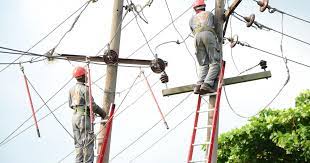The issue of erratic and epileptic power supply in Nigeria is as old as the country itself.
Nigeria’s industrial development over the years has been bedeviled by myriads of problems top among which is the erratic nature of electricity supply.
Every successive government had promised to do something drastic to stabilize the sector to drive growth in the industrial sector.
According to industry experts in the energy sector, the continuous electricity load rejection by distribution companies (discos) could worsen the epileptic power supply and cause more economic loss to the country.
Some experts have advised the Federal Government to look inward and solve the energy problem by using renewable means.
Countries such as Germany, U.S, and other Western countries have long adopted different types of renewable sources to boost their power generation.
South Africa was not left behind, as one of its major sources of power generation, today is coal.
Nigeria is blessed with different types and grades of coal in commercial quantities, such as Anthracite, Bituminous, Sub-Bituminous, and Lignite coals. All these could yield downstream utilization and diversification of our economy.
Available data on coal in Nigeria shows that the mineral occurs in 22 coal fields spread across 16 states of the Federation; Enugu, Ebonyi, Anambra, Imo, Delta, Edo, Ondo, Kogi, Nasarawa, Gombe, Adamawa, Plateau, Kwara, Bauchi, Sokoto, and Benue.
Coal-fired power stations are said to generate over a third of the world’s electricity but cause hundreds of thousands of early deaths each year, mainly from air pollution.
Though Europe and American plants started falling as they are being retired in 2020, but coal plants are still being built in Asia, almost all funded by China.
While looking at the disadvantages of coal to power, it also has three main advantages when compared to other sources of renewable and nonrenewable energy.
Coal is abundant, relatively inexpensive, and requires lower capital expenditure to construct a coal-burning power plant.
Coal-powered energy facilities are less expensive to build and can operate 24 hours a day, seven days a week. Not dependent on the sun or wind, coal plants can produce energy around the clock.
This makes coal energy appealing to less developed countries as a way to generate abundant and inexpensive energy for their growing economies.
These factors have dramatically increased the use of coal power around the world.
Through a liquefaction process, coal can be converted into liquid hydrocarbons and synthetic gas that burn cleaner and produce fewer harmful emissions.
Clean coal technologies are being developed to trap carbon emissions before they enter the environment to limit the damaging effects of burning this fossil fuel.
The Minister of Mines and Steel Development, Mr. Olamilekan Adegbite, said coal has huge potential but regretted that the world was moving away from fossil fuel, a development that made Nigeria not get needed support from foreign donors to exploit coal.
Adegbite said the Federal Government had embarked on initiatives to use coal to generate power, adding that cleaner technologies were being developed to remove or contain the harmful effects of coal on human beings.
“Anytime you mention coal to the World Bank or any donor agency or anybody that is giving money, they say no that they are not going to support coal because there are cleaner technologies than coal.
“But we have come to the realization that Nigeria has coal in abundance so we must use our coal. So, we are encouraging coal to power locally and it is working.
“The Dangote Group is now using coal in some of their cement plants. They are using coal because coal is cheaper than gas.
“A lot of industries, especially the cement companies are now using coal. Already, we have a few coals to power plants that are coming up.
“The most prominent one is Mostra Energy, which is coming up around Delta State. It is going to develop about 60 megawatts of electricity which will serve the grids. People are asking for more fields now.”
Adegbite said that coal to power plants was being built to generate power by some companies in parts of the country.
The Minister described coal as the cheapest source of power generation in Nigeria.
Adegbite noted, however, that while coal-to-power was being encouraged locally, exporting the mineral might not be popular anymore because the focus was currently on renewable energy.
Dr. Ochechukwu Ogah, Minister of State, Ministry of Mines and Steel Development (MMSD) said that the coal reserve of Nigeria can sustain our current power supply.
Ogah said that coal production recorded in Nigeria from 2016 to 2020 was 2,953,954.53 tons.
He said that all stakeholders should ensure they adopt a clean coal technology by downstream operators to mitigate the environmental impacts arising from the coal utilization activities.
“The coal reserve of Nigeria can sustain our current power supply and we should be concerned that it has not been included in our energy mix. Vision 20: 2020 had projected a 30 percent coal contribution to the energy mix of Nigeria.
“Nigeria is blessed with year-round flowing rivers that can provide sustainable water for the efficient operations of coal-fired power plants.
While the availability and affordability of coal are advantageous, these factors must be considered in light of the negative impact on the environment resulting from its use.
The future of coal would depend upon the use of low-sulfur varieties, advances in clean coal technologies, and the sourcing of lower-cost alternatives.
While the disadvantages would lower demand for coal energy over time, the lack of a cost-effective alternative should keep this fossil fuel in demand for many years to come.

